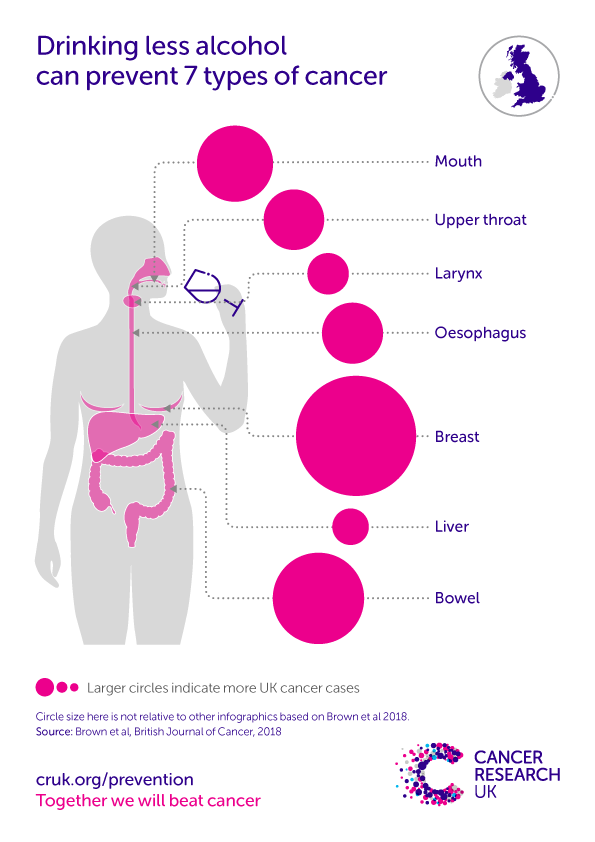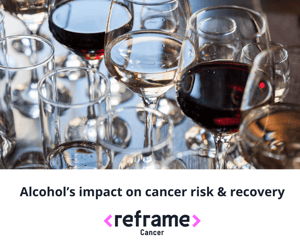We often associate a glass of wine with unwinding after a long day, celebrating a special occasion, or simply enjoying a social gathering. But what many of us don't fully grasp is the hidden cost of that seemingly harmless drink – its potential impact on our cancer risk and recovery.
In the UK, where alcohol consumption is deeply ingrained in the cultural fabric, understanding this link is crucial for making informed choices about our health.
The Statistics: Alcohol and Cancer Risk
The evidence linking alcohol to an increased risk of developing cancer is undeniable. According to Cancer Research UK, around one in six cancer cases in the UK are attributable to lifestyle factors, with alcohol consumption being a significant contributor. Studies have shown a clear association between alcohol intake and various cancer types, including:
- Breast cancer: Even moderate drinking (1-2 units per day) increases the risk of breast cancer by 5%. This risk rises proportionally with the amount of alcohol consumed.
- Bowel cancer: Moderate-to-heavy alcohol consumption is linked to a 15% higher risk of bowel cancer.
- Liver cancer: Alcohol is the main risk factor for liver cancer, with the risk increasing significantly with heavy drinking.
- Oesophageal cancer: The risk of oesophageal cancer is five times higher in heavy drinkers compared to non-drinkers.
These statistics highlight the need for increased awareness about the potential consequences of our drinking habits.

Image Source: Cancer Research UK
Beyond the Diagnosis: Alcohol's Influence on Recovery
For those diagnosed with cancer, the journey towards recovery is fraught with challenges. Unfortunately, alcohol can further complicate this process, impacting treatment effectiveness and overall well-being.
- Weakened immune system: Alcohol consumption suppresses the immune system, making it harder for the body to fight cancer and recover from treatment side effects.
- Reduced treatment response: Alcohol can interfere with the effectiveness of certain cancer treatments, such as chemotherapy and radiotherapy.
- Increased risk of complications: Alcohol can exacerbate treatment-related side effects like fatigue, nausea, and mouth sores.
- Psychological impact: Alcohol can contribute to anxiety, depression, and other mental health issues, which can hinder the healing process.
So, what can we do? Here are some steps:
- Be mindful of your drinking: The UK Chief Medical Officer recommends staying below 14 units of alcohol per week, with at least two alcohol-free days.
- Choose non-alcoholic alternatives: Enjoy sparkling water with a squeeze of lime, herbal teas, or delicious mocktails.
- Talk to your doctor: Discuss your concerns about alcohol and cancer risk, especially if you're already living with the disease.
Remember, every drink carries a risk, and even small reductions can make a big difference. By raising awareness and making informed choices, we can reduce our risk of alcohol-related cancer.
Additional Resources:
- Cancer Research UK: https://www.cancerresearchuk.org/home
- NHS Alcohol Advice: https://www.nhs.uk/live-well/alcohol-advice/alcohol-support/
- Macmillan Cancer Support: https://www.macmillan.org.uk/
